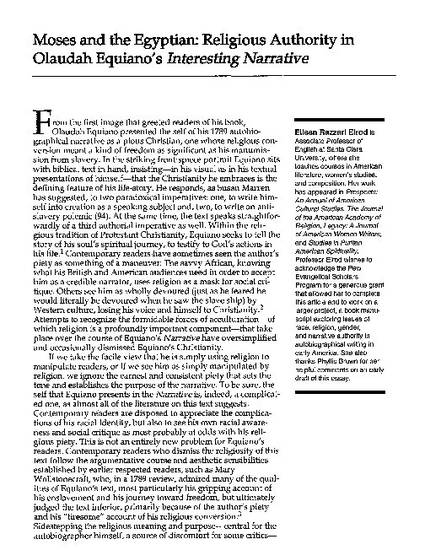
From the first image that greeted readers of his book, Olaudah Equiano presented the self of his 1789 autobiographical narrative as a pious Christian, one whose religious conversion meant a kind of freedom as significant as his manumission from slavery. In the striking frontispiece portrait Equiano sits with biblical text in hand, insisting-in his visual as in his textual presentations of himself-that the Christianity he embraces is the defining feature of his life-story. He responds, as Susan Marren has suggested, to two paradoxical imperatives: one, to write himself into creation as a speaking subject and, two, to write an antislavery polemic (94). At the same time, the text speaks straightforwardly of a third authorial imperative as well. Within the religious tradition of Protestant Christianity, Equiano seeks to tell the story of his soul's spiritual journey, to testify to God's actions in his life.1 Contemporary readers have sometimes seen the author's piety as something of a maneuver: The savvy African, knowing what his British and American audiences need in order to accept him as a credible narrator, uses religion as a mask for social critique. Others see him as wholly devoured (just as he feared he would literally be devoured when he saw the slave ship) by Western culture, losing his voice and himself to Christianity. Attempts to recognize the formidable forces of acculturation-of which religion is a profoundly important component-that take place over the course of Equiano's Narrative have oversimplified and occasionally dismissed Equiano's Christianity.

Reprinted with permission from author and publisher. http://dx.doi.org/10.2307/2903311